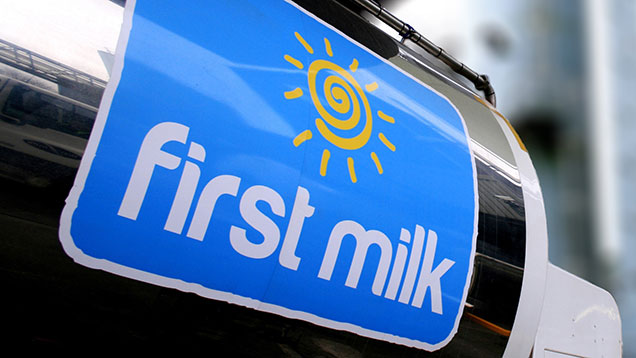First Milk AGM told co-op ‘in very good shape’ for difficult year

First Milk’s chief executive Kate Allum has insisted the co-op is “very good shape” for a difficult year ahead, with dairy markets still on the floor.
Speaking to Farmers Weekly after the co-op’s AGM on Friday (30 January), Mrs Allum said the goal was to rebuild confidence in the business.
At the meeting, the co-op revealed it made a £12.1m trading loss in the six months to 30 September 2014.
First Milk hit the headlines earlier this month when it delayed members’ milk cheques by two weeks and ramped up how much capital each farmer must invest, in order to fill a multimillion-pound cashflow hole.
See also: First Milk to give farmers financial update at agm
“We are now in very good shape for that tough year,” Mrs Allum said. “The reason we have made the moves we have is in order to get us through the flush and the ongoing market volatility.
“At the moment I don’t think anybody wants to call where the markets are going to go and when they’re going to go, so we need to make sure we are in good shape to do that.”
First Milk has 1,200 farmer members but only about 40 farmers attended the AGM in Haydock, Merseyside. Taking into account proxy votes, 122 farmers were represented.
The co-op estimates about 700 had already come to emergency member meetings arranged after the shock changes three weeks ago.
“At the moment I don’t think anybody wants to call where the markets are going to go and when they’re going to go, so we need to make sure we are in good shape to do that.” Kate Allum, First Milk
Farmers in the AGM reported that First Milk’s board faced tough but not heated questioning, which largely centred on the stability of the business in the months and years to come.
Some said questions were “well-answered” and the discussion was “constructive”, with the general mood more of understanding than anger.
Members overwhelmingly voted to re-elect the board’s vice-chairman Nigel Evans and finance director Gerry Sweeney.
Mr Sweeney gave a presentation on First Milk’s recent performance, explaining how the co-op has had to handle 100m extra litres in the last year.
He said the proportion of the business’ milk going through the Westbury skimmed milk powder plant has jumped from 4% two years ago to 19% today.
The company said returns from milk going into Westbury are little more than the AMPE market indicator, which sits at 19.8p/litre but does not include transport costs.
Mrs Allum said 70% of the co-op’s milk goes into longer-term partnerships, like the hard cheese tie-up Adams Foods.
She said striking those deals was an important step in improving the milk price farmers are paid.
“That is not to say the milk price won’t move but it is a very different position to being exposed directly to the commodity markets,” Mrs Allum said.
